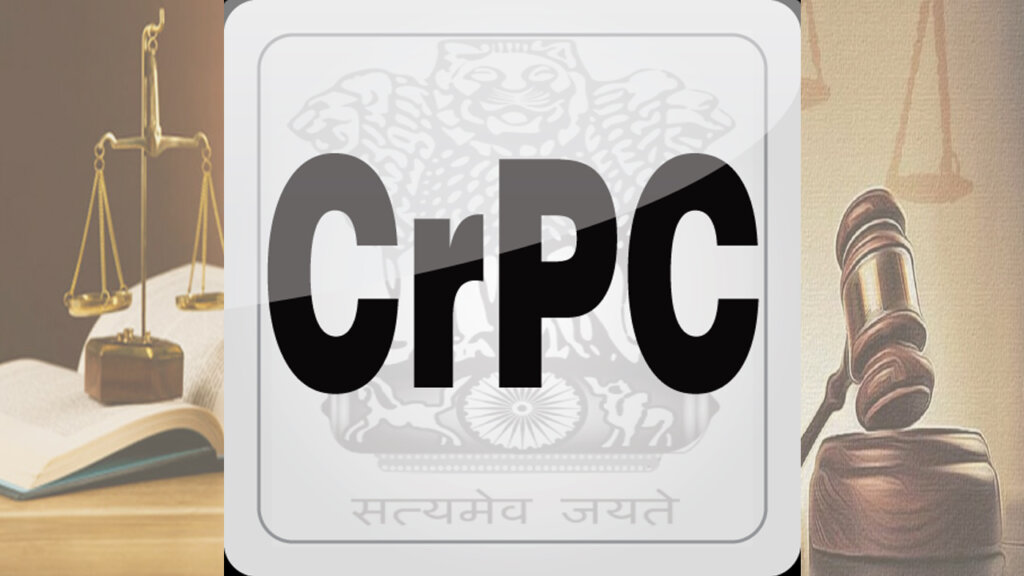The Code of Criminal Procedure (CRPC) is a crucial legislation that governs the procedural aspects of criminal law in India. It provides a systematic framework for the investigation, prosecution, and adjudication of criminal cases. Enacted in 1973, the CRPC replaced the older code that was in force since 1898. The CRPC plays a pivotal role in ensuring fair and just criminal proceedings while safeguarding the rights of individuals accused of committing offenses. In this comprehensive overview, we will delve into the key provisions, functions, and significance of the Code of Criminal Procedure in the Indian legal system.
Historical Background:
The evolution of the Code of Criminal Procedure can be traced back to the British colonial era. Before the enactment of the CRPC in 1973, India had been operating under the Criminal Procedure Code of 1898. This earlier code was rooted in the principles of British criminal jurisprudence and had undergone several amendments to accommodate the legal needs of the time. However, by the mid-20th century, there was a growing recognition of the need to modernize and update the procedural aspects of criminal law to ensure a fair and efficient criminal justice system.
Enactment and Structure:
The Code of Criminal Procedure, 1973, was enacted by the Parliament of India and came into effect on April 1, 1974. It consists of a comprehensive set of provisions divided into sections, chapters, and schedules. The CRPC covers various aspects of criminal proceedings, from the initiation of cases to the appeals process.
The CRPC is structured as follows:
Preliminary: This section contains definitions and interpretations of key terms used throughout the code.
Constitution of Criminal Courts and Offices: This chapter outlines the hierarchy and jurisdiction of criminal courts in India, ranging from the Supreme Court to the Magistrates’ Courts.
Process to Compel Appearance: This chapter details the procedures for compelling the attendance of witnesses and the production of documents in court.
Preventive Action of the Police: This section outlines the powers and responsibilities of the police in preventing and investigating crimes.
Arrest of Persons: The procedures for the arrest of individuals, including the grounds and conditions for arrest, are covered in this chapter.
Processes to Compel the Production of Things: This chapter deals with the procedures for compelling the production of documents and other physical evidence.
Processes to Summons and Warrants: This section outlines the issuance of summons, warrants, and other processes to secure the attendance of accused persons in court.
Processes to Executions: The procedures for executing sentences, orders, and warrants are detailed in this chapter.
Provisions as to Offenses Affecting the Administration of Justice: This section includes provisions related to offenses that obstruct or interfere with the administration of justice.
Maintenance of Public Order and Tranquility: This chapter discusses the powers and procedures for maintaining public order and tranquility.
Processes to Prevent the Cognizable Offenses: This section outlines the processes for the prevention of cognizable offenses by police officers.
Information to the Police and Their Powers to Investigate: The powers of the police to investigate offenses, gather evidence, and conduct searches are covered in this chapter.
Proceedings in Prosecutions: This section deals with the procedures to be followed during the trial of criminal cases.
Conditions Requisite for Initiation of Proceedings: The conditions necessary for the initiation of criminal proceedings are outlined in this chapter.
Complaints to Magistrates: This chapter discusses the procedures for filing complaints before magistrates.
Chapter XXI: Trials of Summons Cases by Magistrates: This chapter covers the procedures for the trial of cases where the offense is punishable with a fine or imprisonment for a term not exceeding two years.
Chapter XXII: Trial of Warrant Cases by Magistrates: This section deals with the trial of cases where the offense is punishable with imprisonment for a term exceeding two years.
Trial of Summons Cases by High Courts: This chapter discusses the procedures for the trial of cases before the High Courts.
Conditions Requisite for Initiation of Proceedings: The conditions necessary for the initiation of criminal proceedings are outlined in this chapter.
Chapter XXIV: General Provisions as to Inquiries and Trials: This chapter provides general provisions and guidelines applicable to inquiries and trials.
Appeals: The procedures and provisions related to appeals are discussed in this section.
Chapter XXVI: Summary Trials: This chapter deals with the procedures for summary trials, which are expedited proceedings for minor offenses.
Chapter XXVII: Irregular Proceedings: This section addresses irregularities that may occur during proceedings and how they may be cured.
Chapter XXVIII: Compensation for Wrongs: This chapter discusses the provisions for granting compensation to victims of wrongful arrests and malicious prosecutions.
Chapter XXIX: Limitation for Taking Cognizance of Certain Offenses: The time limits within which certain offenses can be taken cognizance of are outlined in this chapter.
Provisions as to Bail and Bonds: This section deals with the procedures and conditions for granting bail to accused persons.
Chapter XXXI: Transfer of Criminal Cases: This chapter outlines the provisions for transferring criminal cases from one court to another.
Miscellaneous: This section covers various miscellaneous provisions related to criminal proceedings.
Key Provisions and Significance:
The Code of Criminal Procedure plays a pivotal role in ensuring the fair and just administration of criminal justice in India. It provides a comprehensive framework that governs the entire spectrum of criminal proceedings, from the initiation of a case to its final disposal. Some key provisions and aspects of the CRPC include:
Fair Trial: The CRPC ensures that individuals accused of crimes are afforded a fair trial by establishing procedures for the presentation of evidence, examination and cross-examination of witnesses, and other essential aspects of a trial.
Protection of Rights: The CRPC safeguards the rights of accused individuals by setting out procedures for arrest, search and seizure, and interrogation. It ensures that individuals are not subjected to arbitrary or illegal actions by law enforcement authorities.
Speedy Justice: The CRPC emphasizes the importance of speedy justice and contains provisions to expedite trials and dispose of cases promptly.
Role of Magistrates: Magistrates play a critical role in the criminal justice system, and the CRPC outlines their powers, responsibilities, and procedures for conducting trials and delivering judgments.
Victims’ Rights: The CRPC recognizes the rights of victims by providing provisions for their participation in criminal proceedings and the grant of compensation in cases of wrongful arrests or malicious prosecutions.
Appeals and Revisions: The CRPC establishes a comprehensive system for appeals and revisions, allowing parties to challenge decisions and seek higher court review if they believe that an error has occurred during the trial.
Public Prosecution: The CRPC sets out the role and responsibilities of public prosecutors in criminal cases, ensuring that the prosecution is conducted fairly and effectively.
Summary Trials: The CRPC introduces the concept of summary trials for minor offenses, allowing for expeditious disposal of cases and reducing the burden on the judicial system.
Challenges and Critiques:
While the Code of Criminal Procedure plays a crucial role in India’s criminal justice system, it is not without its challenges and critiques:
Delays in Justice: One of the primary challenges is the issue of delays in the criminal justice system. Cases often take a long time to reach resolution, leading to frustration and loss of faith in the system.
Overburdened Courts: The volume of cases and limited resources often result in overburdened courts, contributing to the delays in the disposal of cases.
Complex Procedures: Some critics argue that the procedures outlined in the CRPC can be complex and cumbersome, especially for individuals who may not have access to legal representation.
Backlog of Cases: The accumulation of pending cases, commonly referred to as the “backlog,” remains a significant challenge that impacts the efficiency of the criminal justice system.
Lack of Uniform Application: There may be variations in the application of the CRPC across different states and regions, leading to inconsistencies in the administration of criminal justice.
Victim-Centric Approach: While the CRPC has introduced provisions for victim participation and compensation, there are ongoing discussions about the need to strengthen the rights and role of victims in criminal proceedings.
Conclusion:
The Code of Criminal Procedure is a cornerstone of the Indian legal system, providing a structured and comprehensive framework for the administration of criminal justice. It outlines the procedures and guidelines that govern the investigation, prosecution, and adjudication of criminal cases, ensuring that justice is served while protecting the rights of individuals accused of offenses. While the CRPC has significantly contributed to the functioning of the criminal justice system in India, challenges such as delays, backlog of cases, and the need for continuous reform remain. The ongoing evolution and refinement of the Code of Criminal Procedure reflect India’s commitment to ensuring a fair, efficient, and responsive criminal justice system that upholds the principles of justice and the rule of law.
Article Searchable Keywords
Code of Criminal Procedure India
CRPC 1973 overview
Indian criminal law procedures
CRPC historical evolution
Criminal justice system in India
Fair trial rights in CRPC
Rights of accused in CRPC
CRPC jurisdiction and hierarchy
Criminal court structure India
CRPC procedures for witnesses
Police powers and CRPC
Arrest procedures under CRPC
Summary trials in CRPC
Appeals and revisions in CRPC
CRPC challenges and reforms
Delays in criminal justice India
Overburdened courts CRPC
Victim rights in CRPC
CRPC and backlog of cases
Indian legal system critique
Role of magistrates in CRPC
Efficiency of criminal justice India
CRPC amendments and updates
CRPC and rule of law
CRPC impact on criminal cases
Article Searchable query
Navigating India’s Criminal Justice: Code of Criminal Procedure Unveiled
Balancing Fairness and Procedure: Code of Criminal Procedure in India
Decoding CRPC: Key Provisions and Impact on India’s Legal System
From Colonial Legacy to Modern Framework: Evolution of CRPC in India
Ensuring Justice: The Role of Code of Criminal Procedure in India
Exploring CRPC: Structure, Rights, and Challenges in Criminal Cases
CRPC 1973: A Comprehensive Overview of India’s Criminal Procedural Law
Speeding Up Justice: CRPC’s Role in Expediting Criminal Trials in India
Legal Landscape Unveiled: CRPC’s Influence on Indian Criminal Proceedings
Challenges and Progress: CRPC’s Journey in India’s Legal Evolution
CRPC and Fair Trials: Safeguarding Rights in India’s Legal Framework
Analyzing CRPC’s Impact: Delays, Backlog, and Reforms in Criminal Justice
bhalakatha
prayas
mind plugin
#bhalakatha #prayas #MindPlugin





